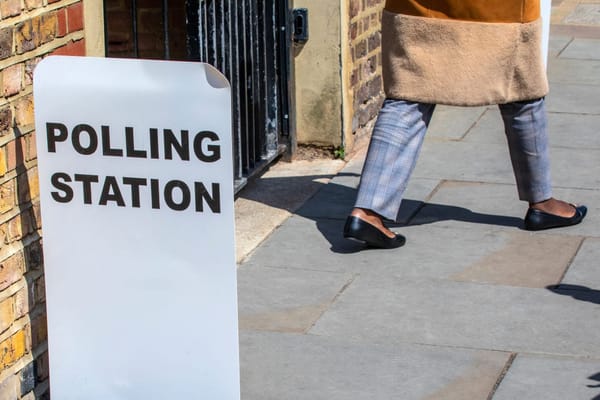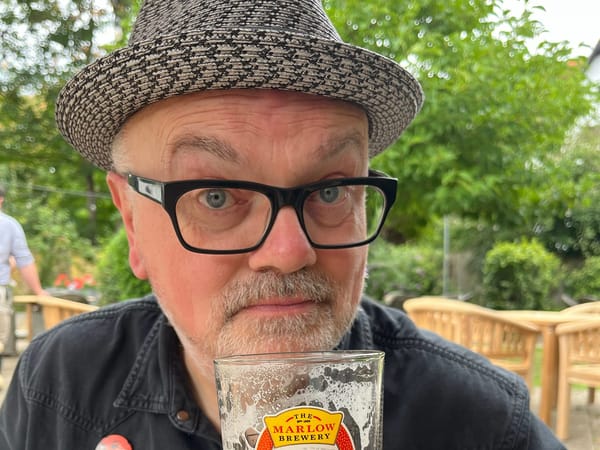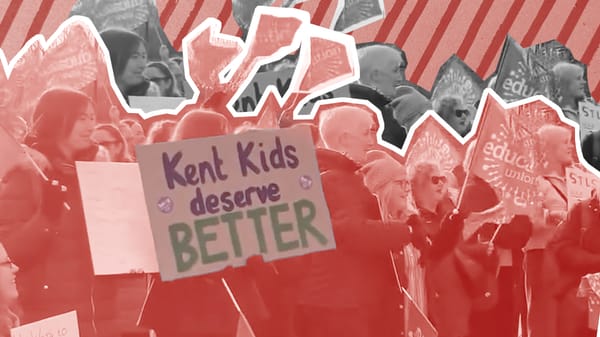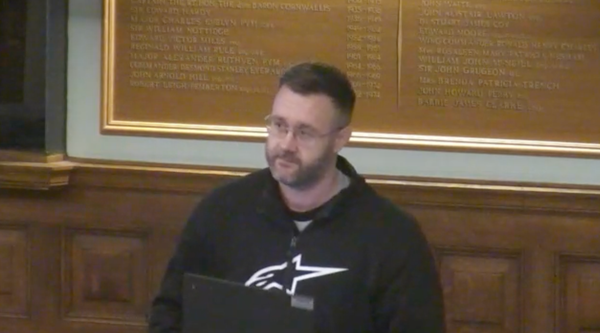"If some of these kids weren’t here, they would be dead"
What we asked Brent Lewis, CEO of the FAR Academy
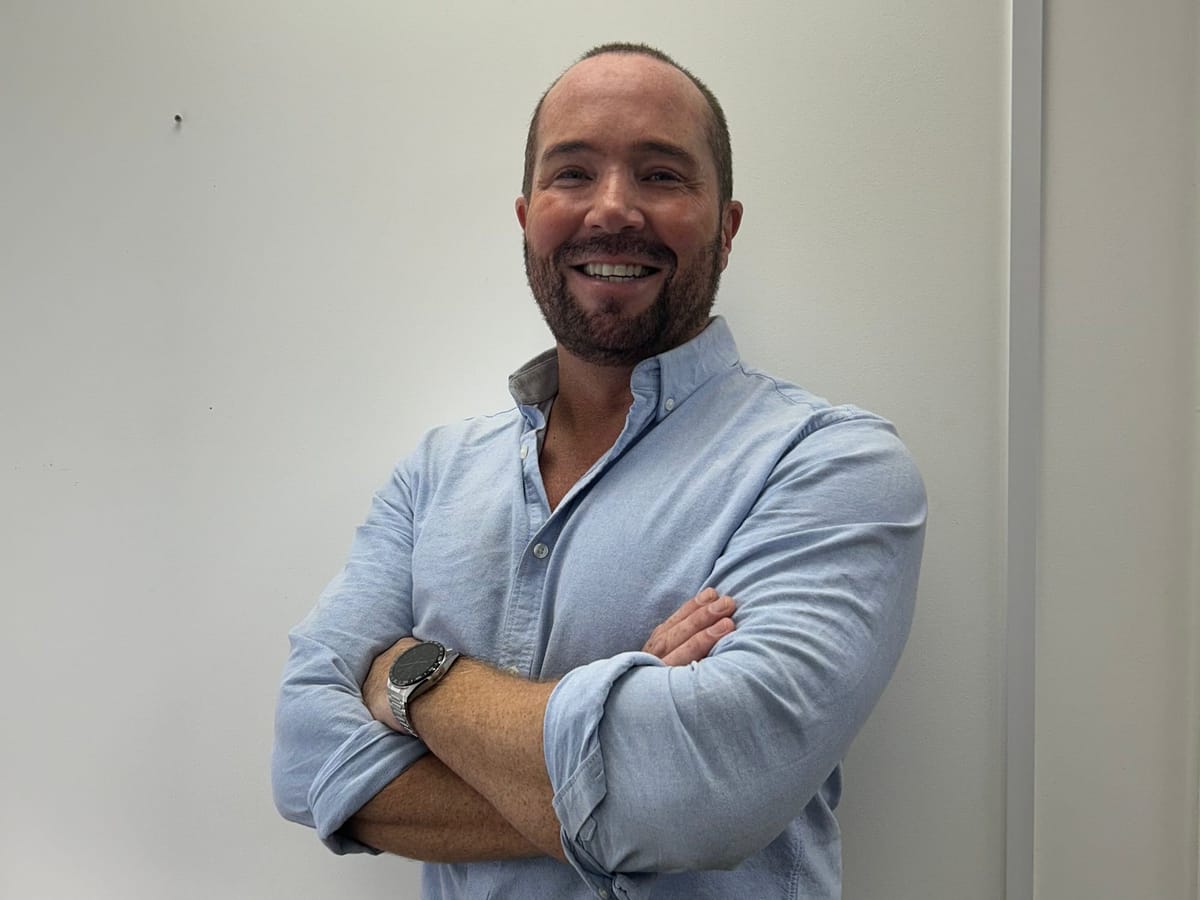
The FAR Academy is an award-winning education provider for students with special educational needs and mental health support needs. We spoke with headteacher Brent Lewis about the dispute they are now facing with Kent County Council over funding, which could detrimentally affect their students. We also talked to Brent about what brought him to Kent and how his own education affected his approach to teaching…
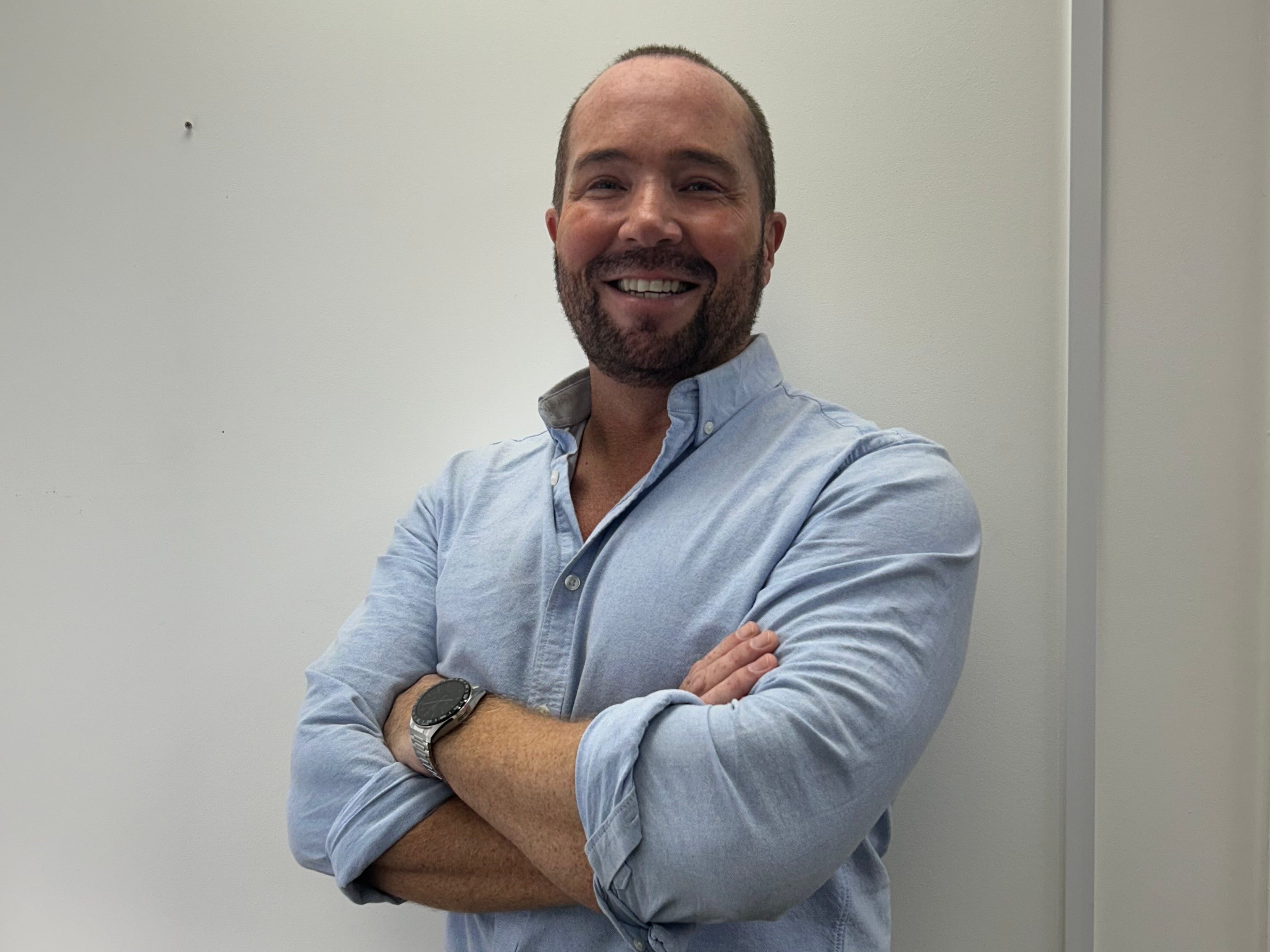
What is your official occupation?
I’m a CEO and headteacher of The FAR Academy.
What is The FAR Academy?
I started in 2009. I was working in schools for many years in different roles and in different types of schools. I was an English teacher, deputy head, headteacher, and that was in primary, secondary and college education. I often kept seeing these kids whose needs weren’t being met through the schools being too big and the training not there. Then I worked in a private school as well, where parents were paying thousands of pounds a term. But it’s exactly the same issue with the kids falling through, and modern education not meeting their needs. In 2009, I thought I can’t do this anymore. I’ve come to really make a difference, and it’s an exam factory and paperwork. I gave everything up, I sold most of my stuff, and I had my truck, a black Nissan truck. I had a skateboard-making kit, because I used to like skateboarding. As a hobby, I used to make skateboards. I spent a year living in the truck, and I went around to schools, skate parks, youth centres and everything, and just really tried to find out what education this generation of kids need. After the year, I made notes, made a thesis of what I think these kids need in education.
Then in 2011, I opened up the FAR Academy, which supports young people with mental health issues, who don’t fit in the general school role, the mould of a school. I work with a lot of young people with SEN issues, as well as autism and ADHD. I’ve built up a programme that works for hundreds of kids a year now at the college and supports the holistic side of their nature. Their mental health, which is a priority for us, is getting that sorted here. Then they’ll come with other trauma that will work with our psychotherapists and counsellors, and then once we’ve got a stable person, as best as we can, we introduce them to education. Then they go through our program for up to five years. At the end of it, hopefully, get a job or become self-employed, or something they love to do in their lives. From 2011, I’ve still got students contacting me saying they’ve done amazing things, and they’ve got family now. FAR made a big difference.
It’s important that we get the message out there of what we do. Being a non-profit as well, we don’t have a marketing budget. This is actually important for us. We’ve got a waiting list of kids who want to join. It’s a really positive community of young people with us.
Is there a reason it’s called FAR?
There is actually. No one’s asked me that for years. In 2010, I had a student who had a really tough life. And so I said, come make a skateboard, just be around. He was a skater. And I said, this is the first time I’ve done this with someone, I’m going to open up a school and a college for this. I said because you’re the first, you’re the one that’s going to name the college. That was quite risky. It could have been anything. He came up with his two favourite bands, the Foo Fighters and Rage Against the Machine. He wanted Foo and Rage. It would be a mouthful. Over time, we shortened it to FAR. It’s an acronym of that, and that’s the story behind it.
It feels different to a standard school, because our reception is a skateboard shop.
There is also a FAR Skate Academy?
Yeah, within our school, we’ve got a skate park and a skate shop. We do a lot of community-based work with the local community, getting in on Saturdays and Sundays, and lots of parties every term for the community to get involved and exercise, learn skateboarding, but it’s not just skateboarding. We’re not a skateboarding college, but our ethos is about creativity, and skateboarding has that. It’s based on music and art. It’s a whole way of life for these kids. They’ll come here, don’t have to be a skateboarder, but you may like the art, the design and the graffiti side. We introduce it all. Feels different to a standard school, because our reception is a skateboard shop. Then you walk in, and if they’re in the classroom, they’re doing Maths and English, and it’s just too much for them. I say, “Well, go and have a skate, go and do whatever and just go and get out your system.” They come back and they feel better. It’s completely different. Skateboarding is a part of what we do, but it’s not a main part. They don’t have to be a skateboarder.
Every kid that comes in to us, we’ll spend two months working with them and saying, “What do you want to learn?”
What is the curriculum if it’s not skateboarding?
We do all standard courses. We do Functional Skills, Maths and English. Then we’ve got a range of core subjects. There’s Art, Graphics, Photography, and we do Business Enterprise. They’re core subjects. Every kid that comes in to us, we’ll spend two months working with them and saying, “What do you want to learn? What do you want to do?” We do loads of assessments. Even if some students want to do dog grooming, phlebotomy, and other things. We look at local businesses, see where we can get help. Then we draw on those experiences and build a course around their need. We actually can offer many courses by working with local communities. If some kid wants to be a mechanic, we’ll work with a local garage up the road. We’ve got somebody at the coffee shop. Then we’ve got someone joining the NHS to learn phlebotomy. We’re independent, we don’t have to be bound too much by certain things. We can offer whatever we like.
What is the age range of the students that you have?
We have pre-16. We have 11 to 16. They come in, mainly they’re still enrolled in school, but they’re not doing well in school. They’ll come here for a day release, we’ll do lots of assessments with them. The school uses it as a, ‘If you come in and your attendance is good, we’ll let you go to FAR Academy for a day.’ It’s that kind of partnership we have with local schools. Then from 16 to 25, we have our post-16 college, mainly with young people with educational healthcare plans. They’ll come in, and we’ll assess them, and they can stay with us for quite a few years until they find their way.
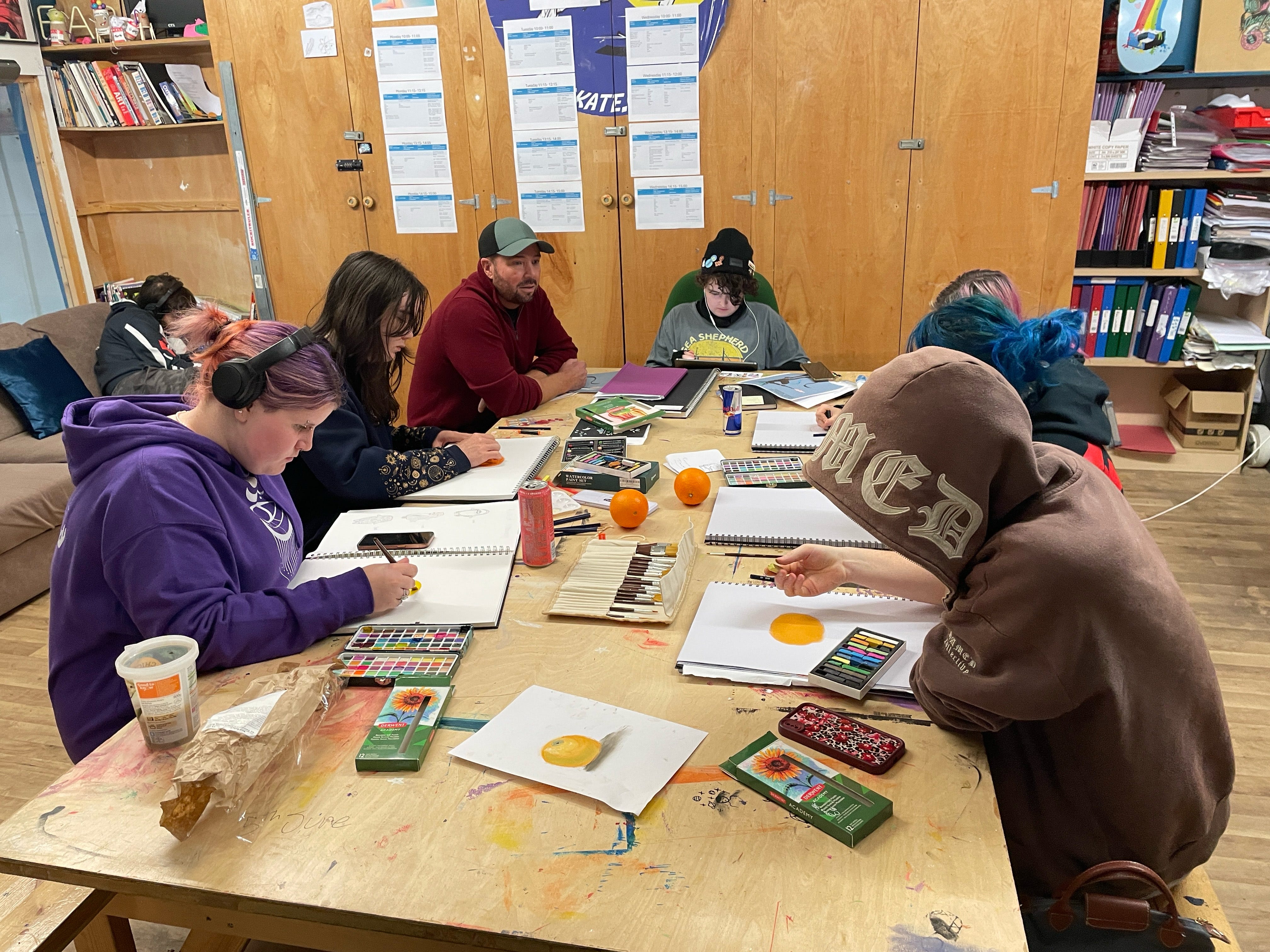
You mentioned that you have a waiting list. How many students do you traditionally take in a year?
We’ve got probably 60 on the waiting list. We are looking to expand. But we’ve got spaces for 40 post-16 students now, and then we have our pre-16, which is normally around 10 to 15. It’s small, but it’s just right for the type of kids that we have, through anxiety with big crowds and things.
What is the process if someone reading this is interested in it for their young person? Is there an application process?
If they’re pre-16, they’ll speak to their school. Their parents will speak to their school and say, ‘Look, we’ve heard about this.’ We do a day release with them, and then we’ll contact the school. Most of the local schools know us around Kent. They’ll contact the school, and then it will go through that way. If they’re post-16, there’s a form on the website where they can fill out, and that will contact us. They come in for a look around, and then we’ll go from there.
You must be doing something right because in the past, you’ve won team of the year, and recently, a colleague won teacher of the year.
Yeah, we’ve won quite a few. It’s really positive. The staff this year, which is lovely of them, it’s a bit embarrassing, they’ve put me up for an MBE for the work I’ve been doing for the last 20 years, which is really nice. We win a lot of awards because we’re community-based. I think it’s really important to get out there, and we’ve got a really good team behind us.
You list the fees for a student place at £35,000 and additional SEN costs on the website. Who pays that?
So that’s... We’re a lot cheaper than most. A lot of the schools that are similar to ours are generally from £50,000 to £100,000. Generally, it’s normally £35,000 per child. We’re quite cheap. KCC should pay that, but as you know, we’ve got issues at the moment.
Before we get to that, just to be clear, do parents pay for placements?
Yeah, parents can pay privately. We’ve had people in the past, if they want to pay for the year, they can pay privately, but obviously, they can ask KCC for the payment as well.
What was the decision behind setting up as a Community Interest Company?
We were a charity for a long time, but then covid happened, and the charity fund just wasn’t there. We’ve always been a CIC because we want to give back to the community, and that’s all we do. All our profit goes back. If we earn, even our skate shop is a non-profit shop. Anything we sell in the skate shop, all profits go back to buying books and pens and resources and all the things that the funding doesn’t cover. It’s community-based, and that’s what we want to be supporting, not just these kids, but the whole community. We get paid, but we’re all minimum wage. No one’s making a fortune out of it. It’s teaching. I could have made a fortune if I stayed in private education. I chose to go down this route, because I’m passionate about what we do. We’ve got volunteers. We’ve got members of staff that do over and above.
When did you first realise there was an issue with the relationship with KCC?
It’s been quite a few years to be honest. They’ve underpaid us for many years. Our standard price has been £35,000 because that covers everything. The education, the support services, everything. They get a full package for that, but for the last three years, they’ve only paid us £23,000. I’ve had to get business loans, personal loans, I’ve had to sell my car to get some extra money. Then we get a lot of fundraising people to come along, we do lots of events, to get to the £35,000. But it’s got to a point where, legally, they should be paying for the full-time education. We’re finding it harder as time goes on to keep applying for funds, fundraising, and it’s not a sustainable future. We can’t plan as a business. We can’t do that anymore. We’ve got this contract, got this certain price, now we can plan and keep everything secure. We can’t keep going on with anxiety about if they’re going to pay enough or not.
What was their justification for underpaying in the previous years?
Unfortunately, they just don’t care. That’s pretty much the basic thing of it. It’s actually really tough working with them. They’re looking to reduce the budget. I think it’s not just us. I think there’s lot of other independent non-profits that are going through this pain. We’ve done everything they’ve asked. Our accountant and our CFO have given everything over to prove that even at £35,000, we’re three grand short still. I emailed everything over, but I’ve got nothing back. Since September 5th, we’ve been doing this whole college for free for them. Normally, our funding will get split into three parts. The first one would be the beginning of October, then February, and then July.
Why was it different this year?
In July, we had a meeting with the commissioning team at KCC. They said to us, we’re going to reduce the number of young people coming to you. I said, if you do that, and we’re still getting £23,000, we are not going to be able to run the college on that. I said, we need to get to our standard published fee that’s open and transparent on the website for this year. I had an email back saying, ‘Thank you for this. We agree with this.’ I was assuming from September. I put in the invoice for the normal price, and now we’re fighting for the funds. There are two students who’ve got court orders for KCC to pay, and they’re refusing those as well.

